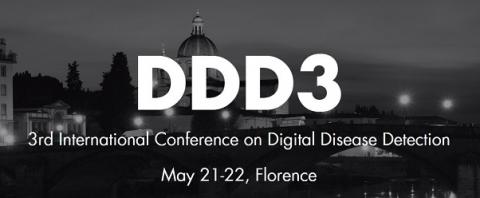Third International Digital Disease Detection Conference

Firenze Fiera Exhibition Center
The ability to rapidly recognize and respond to both global and local health threats remains a critical public health priority. The ever-growing digital world represents an unprecedented opportunity to harvest for new solutions and tools to face these emergencies. This digital means of disease detection has been made possible by the growing influence of Internet technology, which has significantly changed the landscape of public health surveillance and epidemic intelligence gathering.
Disease and outbreak data is now disseminated not only through formal online announcements by government agencies, but also through other informal digital channels such as social networking sites, blogs, chat rooms, Web searches, local news media, crowdsourcing platforms. These informal data streams have been credited with decreasing the time between an outbreak and formal recognition of an outbreak, allowing for an expedited response to the public health threat. The very recent addition of data from smart wearable body sensors for health self-assessment allows also to collect health-related data from the general public on a broader perspective not necessarily disease-related.
Collectively, these online sources create an image of global public health that is fundamentally different from the one produced by traditional public health surveillance infrastructure. As these sources become more widely used and relied upon, it is imperative that health professionals collaborate to demonstrate and improve the effectiveness of these sources. We must identify strengths and weaknesses that can be capitalized upon and remedied.
The intention of the Third International Digital Disease Detection Conference is to connect innovators in health and technology to 1) continue to define this emerging field; 2) explore novel data streams and new technologies; 3) host workshops to identify and discuss strengths and weaknesses in surveillance methods, and to promote critique and development of already existing surveillance and diagnostic tools.
The conference will be co-located with the World Wide Web (WWW) conference. The conference and workshops will be held on Thursday, May 21 and Friday, May 22 2015 at the Firenze Fiera Exhibition Center.
